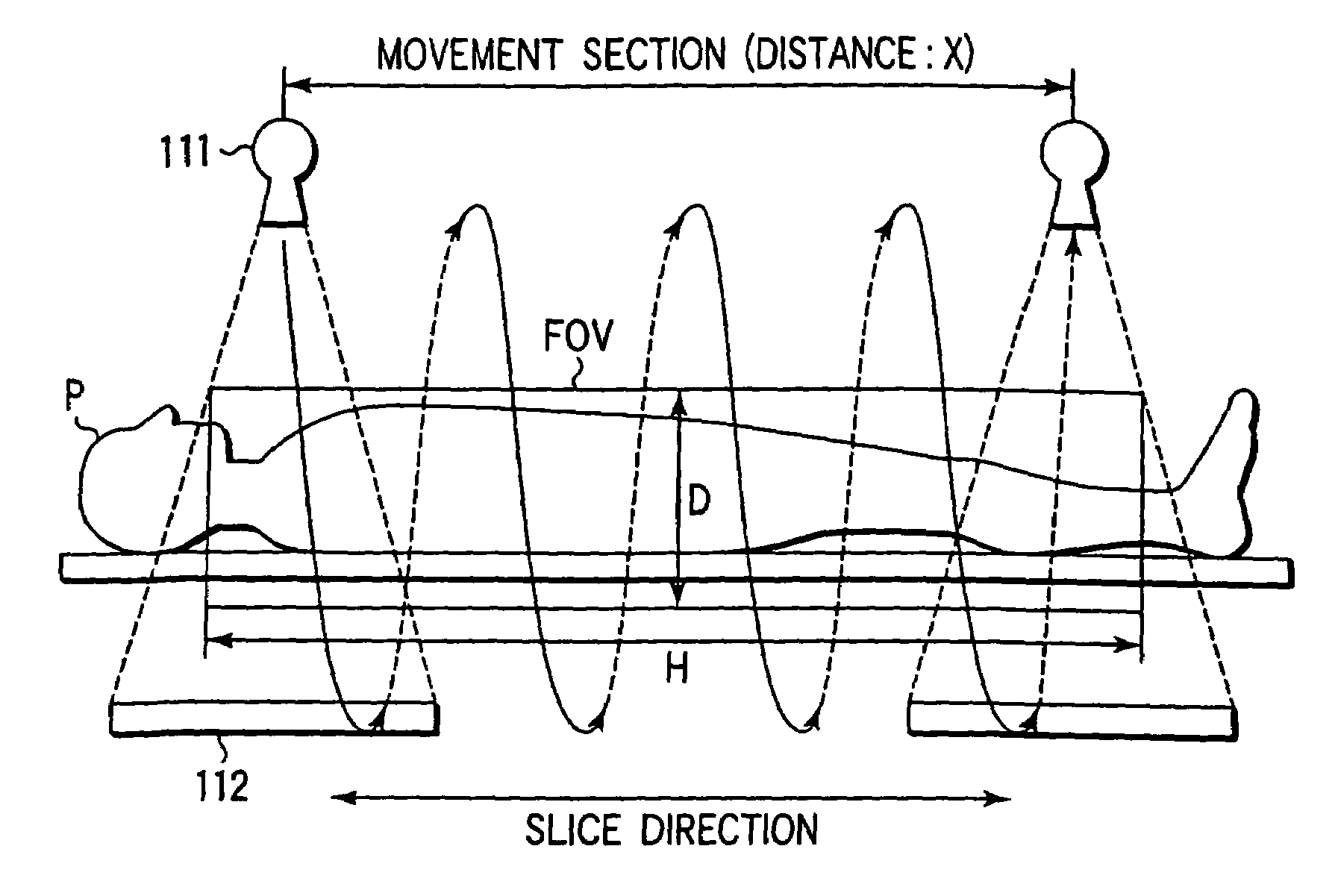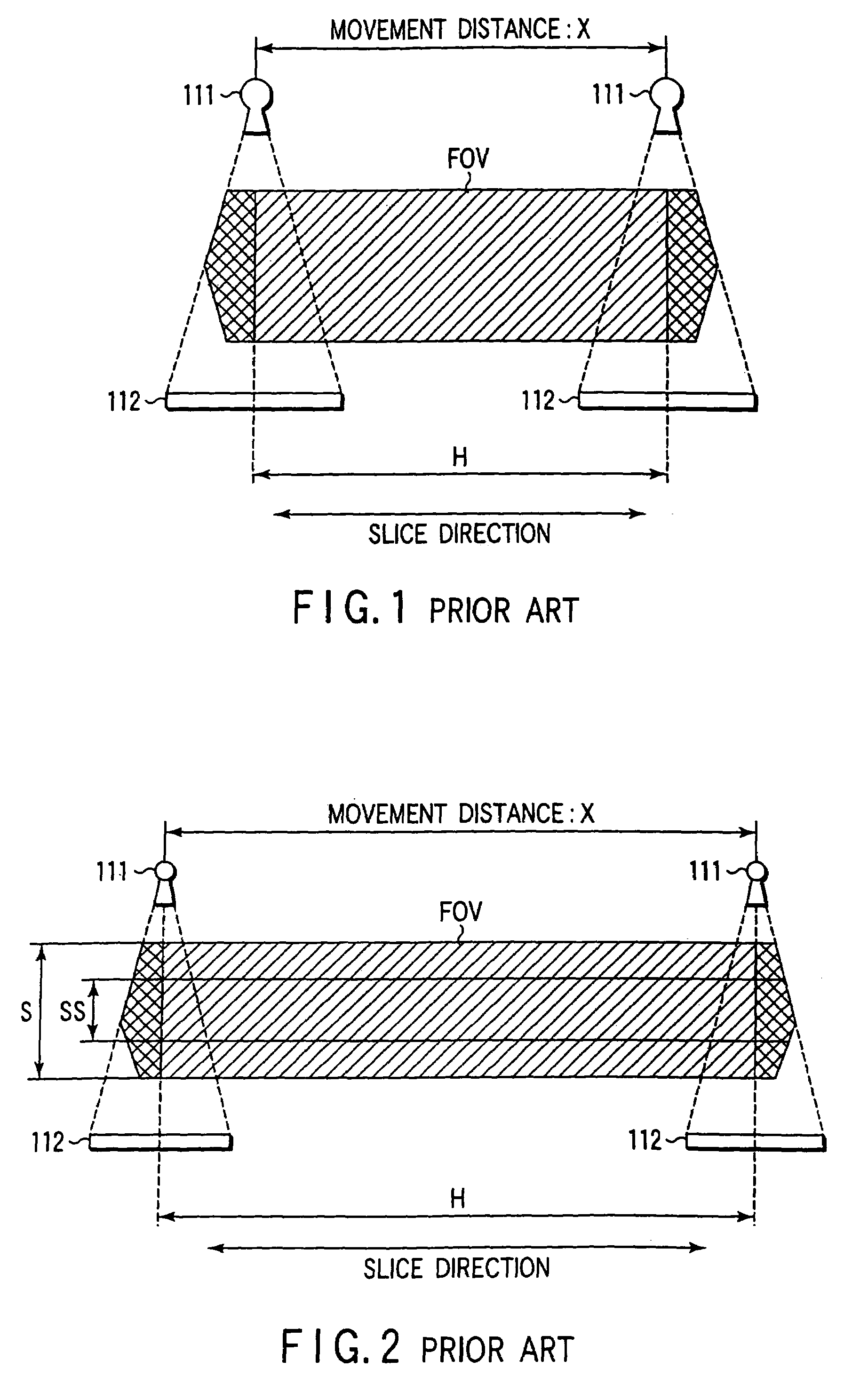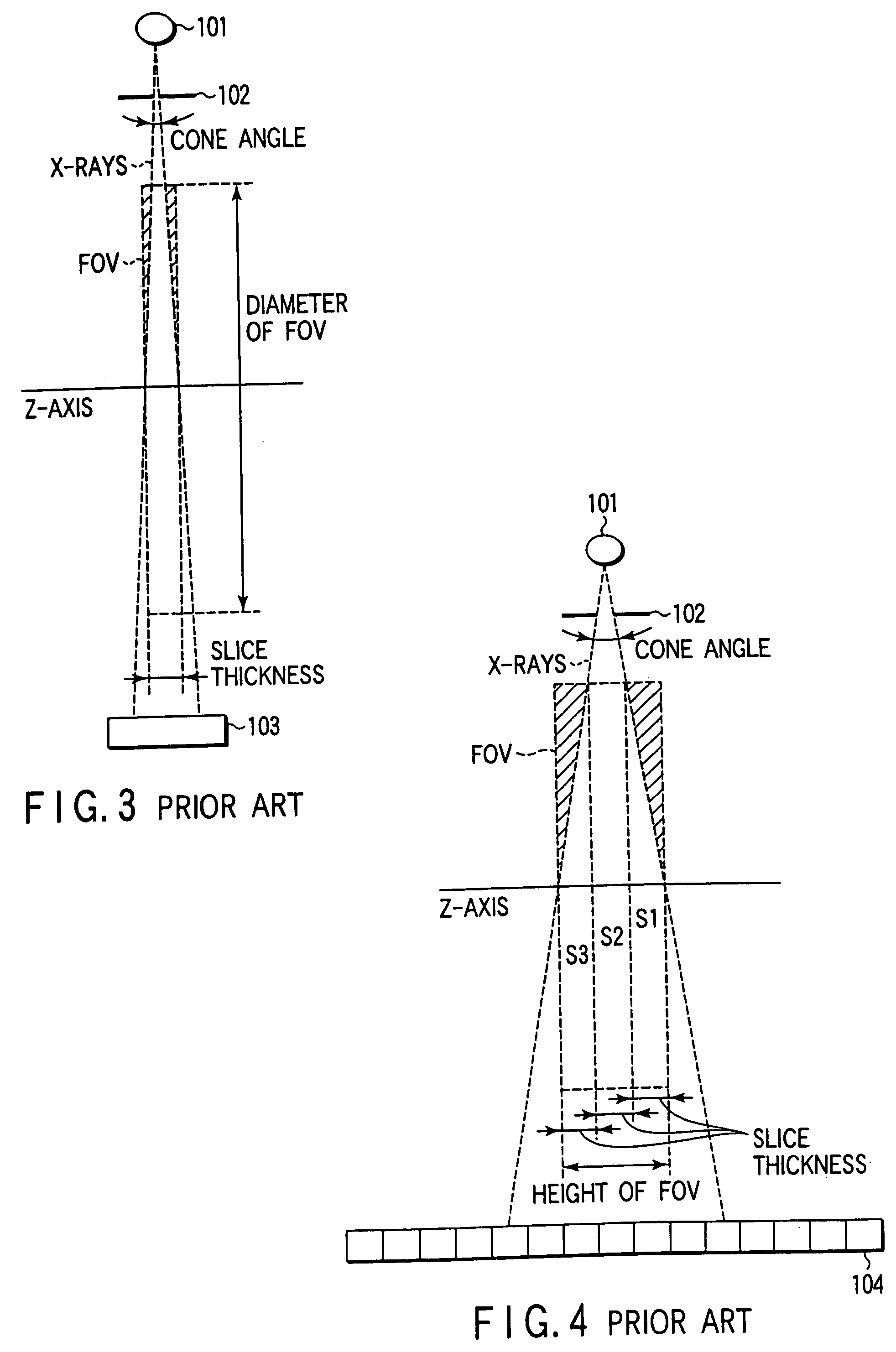X-ray computed tomographic imaging apparatus
a computed tomographic and x-ray technology, applied in tomography, instruments, nuclear engineering, etc., can solve the problems of affecting the image quality of the peripheral portions of an mpr image, and the volume ratio of the data omission portion to the reconstruction area fov is very limited, so as to prevent data omission and unnecessary x-ray irradiation
- Summary
- Abstract
- Description
- Claims
- Application Information
AI Technical Summary
Benefits of technology
Problems solved by technology
Method used
Image
Examples
first embodiment
(First Embodiment)
[0039]FIG. 7 shows an arrangement of an X-ray CT apparatus according to the first embodiment. A gantry 11 has a hollow portion. To scan, an object P to be examined placed on a top 113 of a bed is inserted into the hollow portion. The bed has an electric motor for moving the top 113 upon reception of driving power from a table top driver 131.
[0040]The gantry 11 has an X-ray tube 111 and X-ray detector 112. The X-ray tube 111 generates X-rays upon reception of a high voltage from a high voltage generator 111a. The X-ray detector 112 has a plurality of detection elements constituted by, for example, scintillators and photodiodes. The plurality of detection elements are arranged two-dimensionally in the channel and slice directions. For example, M detection elements are arrayed in a line in the channel direction, and N array segments of such detection elements are arrayed along the slice direction.
[0041]The X-ray tube 111 and X-ray detector 112 are rotatably supported ...
second embodiment
(Second Embodiment)
[0061]The first embodiment described above relates to the technique of preventing data omission and unnecessary X-ray generation in a helical scan in multi-slice or cone-beam CT. The second embodiment relates to a technique of preventing data omission and unnecessary X-ray generation in a conventional scan in multi-slice or cone-beam CT.
[0062]A conventional scan is a scan that is performed to acquire data while an X-ray tube is fixed relative to an object to be examined. For example, as shown in FIG. 14, many arrays (e.g., 600 arrays) of X-ray detectors DET are arranged in the body axis direction to oppose an X-ray tube 111. Multi-slice data are acquired by rotating these X-ray detectors around a object P to be examined while a wide-angle cone beam (with large cone and fan angles) is radiated from the X-ray tube 111. Assume that the cone angle is fixed, and a reconstruction area P1 with a large radius is to be scanned. In this case, no data omission occurs, and th...
PUM
 Login to View More
Login to View More Abstract
Description
Claims
Application Information
 Login to View More
Login to View More - R&D
- Intellectual Property
- Life Sciences
- Materials
- Tech Scout
- Unparalleled Data Quality
- Higher Quality Content
- 60% Fewer Hallucinations
Browse by: Latest US Patents, China's latest patents, Technical Efficacy Thesaurus, Application Domain, Technology Topic, Popular Technical Reports.
© 2025 PatSnap. All rights reserved.Legal|Privacy policy|Modern Slavery Act Transparency Statement|Sitemap|About US| Contact US: help@patsnap.com



